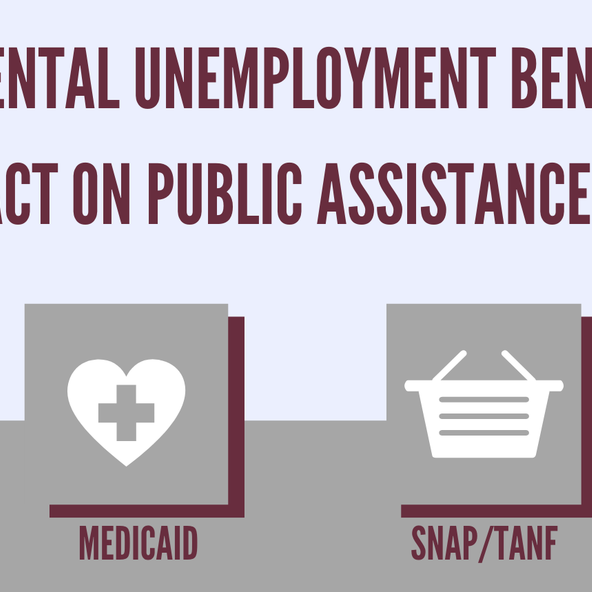
An essential lifeline for DC residents and workers who are out of work due to COVID-19 is unemployment compensation. In the District, the unemployment compensation program is administered by the Department of Employment Services, or DOES. Standard unemployment is a longstanding program that provides 26 weeks of benefits to employees who lose a job or a substantial portion of their income through no fault of their own. Due to the COVID-19 pandemic, Congress put in place several important additional programs for workers as part of the CARES Act. One, called Pandemic Emergency Unemployment Compensation, or PEUC, is an extension of the time period for which workers can receive benefits from 26 to 39 weeks. A second, called Pandemic Unemployment Assistance, or PUA, provides 39 weeks of benefits to gig workers, independent contractors, and other workers who are not eligible for standard unemployment benefits, and is the subject of an earlier post on this blog.
A third, and our focus here, is called Federal Pandemic Unemployment Compensation, or FPUC. As of April 21, 2020, everyone receiving unemployment benefits in the District of Columbia, both standard and PUA, should be receiving an extra $600/week through this program. These additional weekly payments will continue through the end of July 2020. This money is essential for the thousands of District residents who have lost jobs or income due to the measures taken to manage the COVID-19 pandemic.
These extra weekly benefits may be counted as income, however, in other common programs used by DC workers. Here is a roundup of guidance published by the federal government and DC on how regular unemployment benefits and the extra $600 per week (which is often treated differently than regular unemployment benefits) are counted or not counted for public housing, Medicaid, SNAP and TANF, Social Security, and child support.
Housing
The U.S. Department of Housing and Urban Development (HUD) issued guidance, both for Public Housing Agencies (PHAs), including their administration of voucher programs; and site-based section 8, to say that the additional $600/week FPUC is not counted as income for purposes of calculating rent.
For PHAs, page 11 of this PDF states “Regular unemployment benefits are considered income. PHAs shall exclude the $600 per week enhancement provided by the CARES Act because these payments are temporary and likely non-recurring after the pandemic emergency ends.”
Page 10 of this PDF provides the information for site-based section 8 housing: “The temporary weekly federal enhancement to unemployment insurance provided by the CARES Act [is] not to be included in calculations of income. However, HUD notes that regular payments of unemployment insurance (issued by the state) are treated as income, as is customary under program rules.”
Medicaid
The CARES Act itself states and federal Medicaid guidance (p. 17) confirms that the extra $600 weekly does not count in determining income eligibility and the scope of assistance (e.g., cost-sharing, post-eligibility treatment-of-income) for both Medicaid and the Children’s Health Insurance Program (CHIP). Regular unemployment benefits, PUA, and the 13 extra weeks of benefits will still count as income.
SNAP and TANF
DOES guidance (p. 5) provides that the extra $600/week “counts as income when determining eligibility for means-tested programs, except for Medicaid and the Children’s Health Insurance Program (known as CHIP).” This means that it does count as income when determining eligibility for SNAP and TANF. Regular unemployment benefits also count as income for SNAP and TANF.
USDA guidance (question 2) also provides that the extra $600/week is “considered unearned income for the purposes of determining a household’s SNAP eligibility and benefit amount.”
Social Security
Guidance from the Social Security Administration provides that “unemployment benefits do not affect or reduce retirement and disability benefits,” so the extra $600 will not affect any Social Security retirement benefits or SSDI.
However, it provides that “unemployment insurance benefits are considered unearned income” when determining Supplemental Security Income, or SSI.
Child Support
According to guidance for states from the Department of Labor (p. I-6), “Child support obligations must be deducted from FPUC payments in the same manner and to the same extent as these obligations are deducted from regular UC.” DOES will deduct at least 25% of weekly benefit amounts for those who owe child support. See DOES’s Claimant’s Rights and Responsibilities, p. 12.
We encourage anyone receiving weekly unemployment benefits to report them as necessary to the DC Housing Authority, the DC Department of Human Services, the Social Security Administration, and the DC Child Support Services Division to help make sure your benefits are being correctly calculated, but to also contact any department that is incorrectly counting the extra $600 per week as income.
We also call on the USDA, the Social Security Administration, and the DC Department of Human Services and the DC Council to take any necessary actions to exclude the $600 per week from being excluded as income when determining SNAP, TANF, and SSI. During this time of crisis, individuals and families need the full benefit of these resources to be able to carry through until they can return to work.




